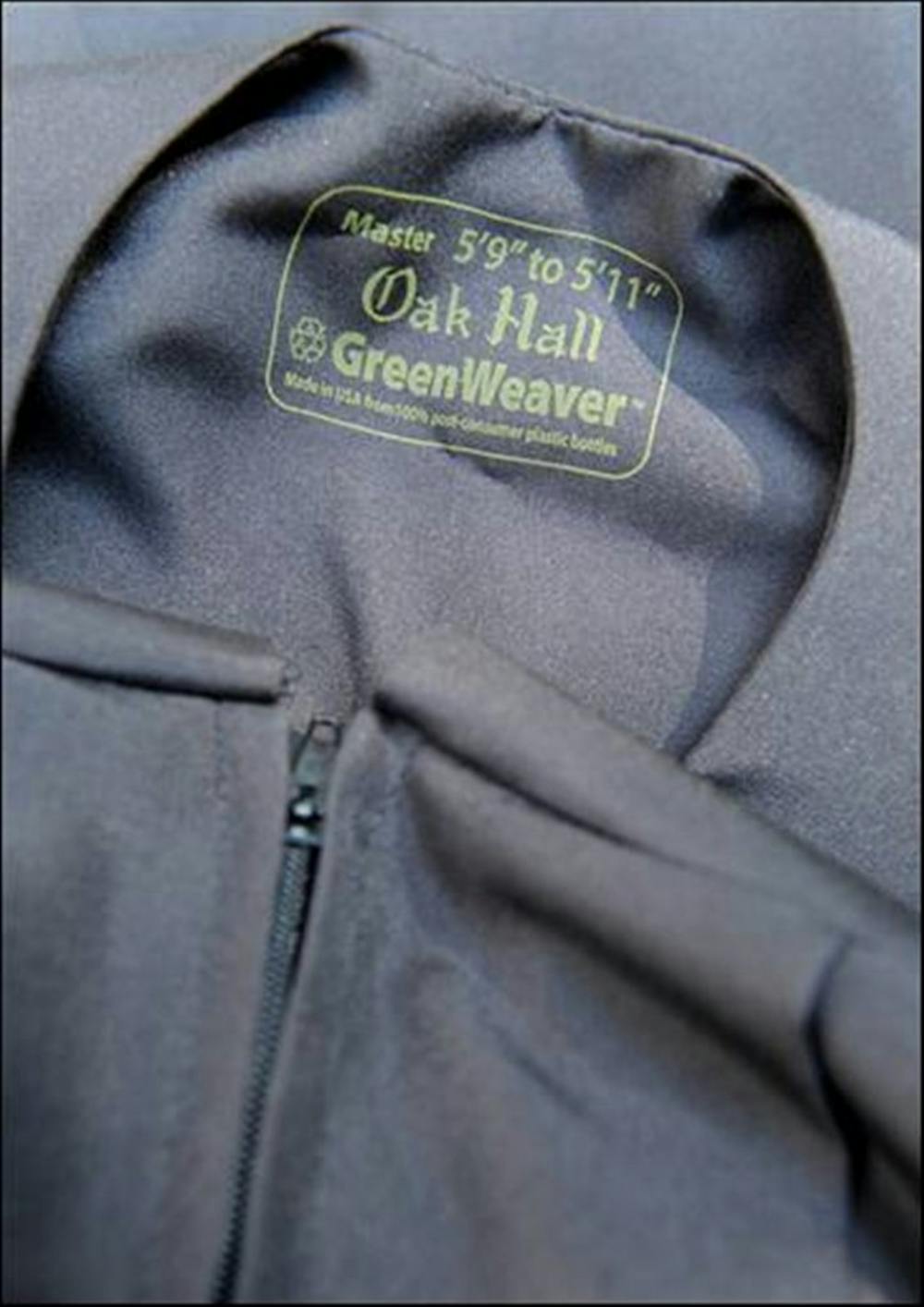A statewide law banning the disposal of electronics as household waste and the introduction of sustainable graduation gowns have bolstered efforts by Elon University's Office of Sustainability to make Elon a "green" campus.
Under the Discarded Computer Equipment and Television Management Law approved this summer in North Carolina, electronics can no longer be discarded as household waste. Instead, specific recycling centers will dispose of the electronics in a safer, more environmentally-friendly manner.
Collection bins for the disposal of CDs, DVDs, MP3 players, cell phones, digital cameras and other small electronic items will soon be available for students, according to Elain Durr, director of sustainability at Elon.
"This new law will keep electronic waste that can contain harmful materials from being put into a landfill, which will help protect the environment," she said. "University-owned electronic waste is recycled at a Durham, N.C. facility, which has in place an environmental management system."
Large components to be discarded will have to be called in for pick-up by Physical Plant, according to David Worden, director of environmental services at Elon University.
"If adhered to properly, there is only good that can come out of this," Worden said. "It will open up new jobs in the advancement of sustainability and bring awareness to the seriousness of monitoring our environment."
Since the law is recent, enforcement of the ban is not a primary concern right now.
"Enforcement of the ban is minimal because of the education efforts, prior to the ban, by the Waste Management department and by local governments to ensure that the public knew where to take their end-of-life equipment," said Ellen Lorscheider, branch head of planning and programs at the N.C. Waste Management Department. "There are 561 collection sites across North Carolina and the majority of these are run by county and city governments."
Although there will only be a few bins around campus for smaller electronics, there are locations in Alamance County, including Burlington and Graham, that will recycle larger electronics, such as computers and televisions. These locations include Goodwill Industries of Central North Carolina, on Church St. and Maple Ave., and A&D Environmental, on Lear Drive.
More sustainable graduation gowns are also decreasing Elon's environmental footprint. Elon recently decided to purchase its gowns from Oak Hill's eco-friendly line of graduation regalia, which is made from recycled water bottles. The 310,000 total graduates who wear the eco-friendly gowns remove approximately 7,130,000 water bottles from landfills annually, according to the company's website.The gowns were first worn at Elon at the Master of Education ceremony August 20, Durr said, and each is made from about 23 plastic water bottles. About 29,000 of these bottles are repurposed through Elon alone.
Many of Elon's new buildings, including the new Colonnades buildings and alumni field house, have sustainable qualities as well. The new Colonnades buildings have solar panels installed on their roofs and each include a geothermal heating/cooling system, according to Durr, and the field house has been gold-certified by the Leadership in Energy and Environmental Design (LEED) system, a program that certifies high-performance green buildings that meet a set of standards.
"The best initiative Elon has recently implemented is the green building policy," said Kristi Jacobsen, a senior majoring in strategic communications who will be interning in the sustainability office this semester. "Elon is doing a great job following the U.S. Green Building Council's LEED rating system to make the new buildings on campus eco-friendly."
The university is working to continue expansion on its many sustainability goals for this upcoming year. Recently, Elon was admitted to the Sustainability, Tracking, Assessment and Rating System (STARS), a self-assessment tool to help determine sustainability progress.
A new addition for students is the Sustainable Living Guide, through which students can learn how to reduce their environmental impact. The SLG can be found on the sustainability website and includes easy changes students can make to their everyday lives to be more eco-friendly.
"The first step is to change their own habits to be more eco-friendly," Jacobsen said. "Always remembering to recycle or compost, remembering to turn off their lights, unplugging chargers when not in use and riding a bike or walking to class instead of driving. The second step is to get involved. Elon offers a lot of great opportunities for students that want to help make their world more sustainable"


